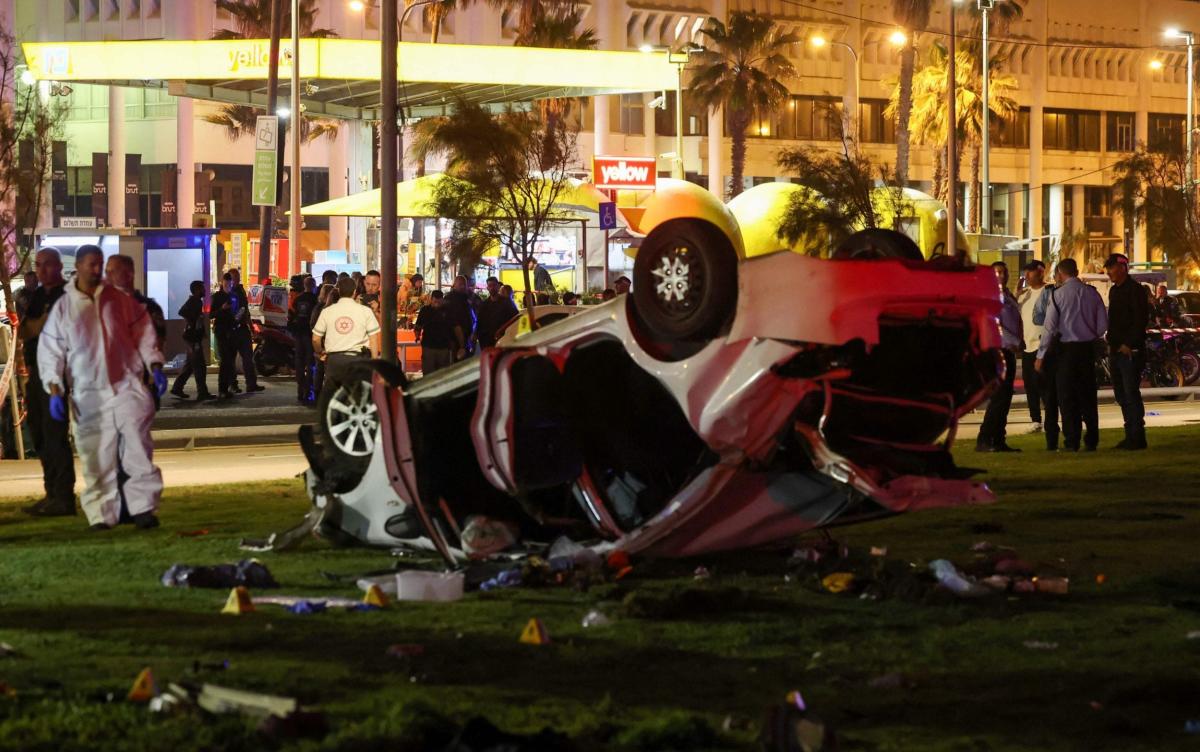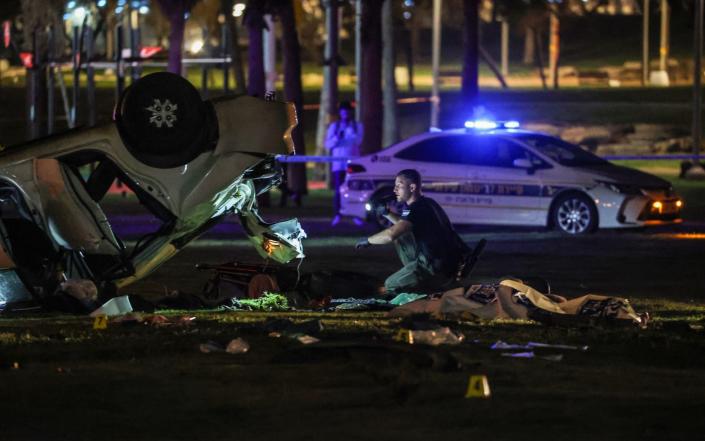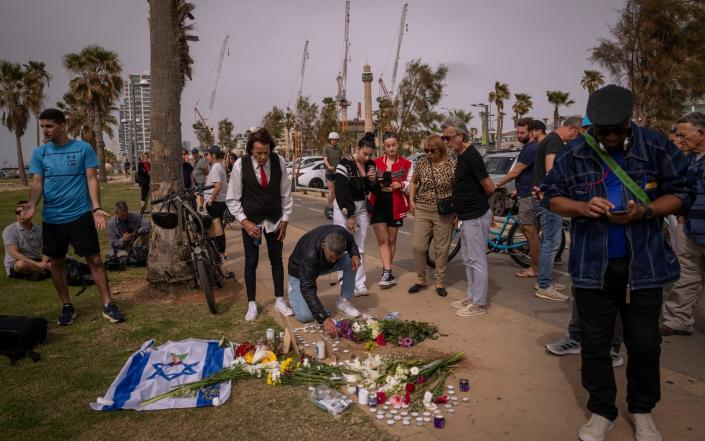A British holidaymaker has described his brush with death in Israel after he was nearly mowed down by the terrorist behind a car-ramming attack on a Tel Aviv beachfront on Friday night.
Freddie, a 31-year-old from London who declined to give his surname, said he and his girlfriend were strolling down the promenade on their first break as a couple when the attacker’s car mounted the pavement and roared towards them.
“We left the hotel for a seaside walk… a car was revving and speeding, and I thought it was an out-of-control driver,” he told The Telegraph. “I had very little time to dive out of the way. It clipped me and we fell over.”
Freddie suffered minor bruising and his girlfriend escaped uninjured, although the contents of her handbag were scattered across the street as the pair were knocked off the pavement.
“If we’d been just a few feet to the left it would have ended very differently,” he said. But he stressed that he would not be intimidated by the attack, saying: “I fully intend on coming back to Israel, and I fully intend to enjoy the rest of the holiday.”
The car, driven by an Arab-Israeli citizen named by local media as Yousef Abu Jaber, 45, sped further down the promenade in search of other victims.
After ploughing into another group of people, killing an Italian citizen and wounding several other Italian and British tourists, it flipped over and the driver was shot dead by police.
The attack was a rare case in which foreign tourists were killed and wounded by a terrorist in Israel, where Palestinian militants almost exclusively target Israelis.
On Saturday night, it was unclear whether the attacker – who reportedly stole the car shortly before the attack – had chosen his victims at random. No group has yet claimed responsibility.
The Italian victim has been identified as Alessandro Parini, 36, from Rome. The Telegraph understands that at least one UK citizen is being treated in an Israeli hospital, having suffered broken bones, but is expected to recover.
Israel is facing some of the worst violence in decades this year amid a major escalation in its decades-old conflict with the Palestinians.
Earlier in the week, Palestinian militants launched dozens of rockets at Israeli cities from the Gaza Strip and southern Lebanon, triggering air raid alerts across the country.
The rocket barrages were partly in retaliation for video footage of Israeli police brutally beating Palestinian worshippers inside the al-Aqsa mosque during Ramadan, which has caused international outrage.
Israeli police said the pre-dawn raid was intended to dislodge “law-breaking youths and masked agitators” they claimed had barricaded themselves inside.
Israel responded to the northern and southern rocket fire by launching air strikes on Gaza and southern Lebanon in the early hours of Friday morning.
This was followed by a Palestinian shooting attack in the Jordan Valley later on Friday, which killed two British-Israeli sisters, and Friday night’s attack in Tel Aviv.
Prof Eli Sprecher, the deputy director of the Tel Aviv Medical Centre, told The Telegraph that five people had been hospitalised after the beachfront attack.
“Three remain here with orthopedic injuries, fractures, and one patient has fractured the vertebral column. This will require intervention of surgeons,” he said.
“Hopefully they will be operated on shortly and we expect they will eventually recover, but it’s a little early to be sure of their injuries,” he said, adding that all three had said they did not wish to be identified or to speak to journalists.
At the scene of the attack, by the Charles Clore Park on the Tel Aviv seafront, Israelis laid floral tributes for the Italian victim and messages of solidarity with Italy.
Some onlookers wept and lit candles as the sun went down on Israel’s largest city. The attack was particularly shocking as it took place during the Jewish holiday of Passover, which this year coincides with Easter and Ramadan.
In Kafr Qassem, the Arab town in Israel in which the terrorist lived, city officials issued a statement that said: “We condemn any harm to innocent lives and call for tolerance from all sides. This is not the way of the residents of Kafr Qassem. The city was and remains a place for living together and pursuing peace.”
Benjamin Netanyahu, the Israeli prime minister, has mobilised all border police reservists in response to the two attacks on Friday.




